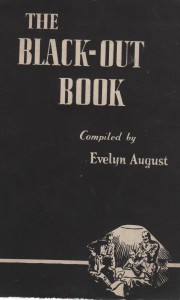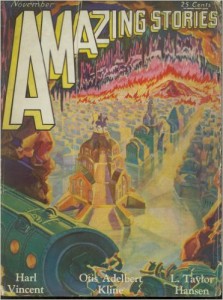 Found in The Black-Out Book (1939) are these rules copied out in her diary by the editor’s great-grandmother.
Found in The Black-Out Book (1939) are these rules copied out in her diary by the editor’s great-grandmother.
Good manners are made up of petty sacrifices
When calling, do not enter into grave discussion. Trifling subjects are better.
It is rude to turn a chair so that your back will presented to anyone.
In company do not converse with another in a language that is not understood by the rest.
If it becomes necessary to break a marriage engagement, it is best to do so by letter. The reasons for your course can be given much more clearly than in a personal interview. All presents, letters, etc., received should accompany the letter announcing the termination of the engagement.
During a walk in the country, when ascending a hill or walking on the bank of a stream, and the lady is fatigued, and sits upon the ground, a gentleman will not seat himself by her, but remain standing until she is rested sufficiently to proceed.
A dispute about religion is foolish. When it is known that there are fifteen hundred millions of people on the face of the earth, speaking 3034 languages, and possessing one thousand different religious beliefs, it will be easily seen that it is a hopeless task to harmonize them all. Continue reading

 Found in The Poetry of Flight, an Anthology (edited by Stella Wolfe Murray, published by Heath Cranton, London 1925) this stirring poem by the American poet Minna Irving (1857 – 1940) Her real name was Minnie Odell Michiner and she was from Tarrytown, New York. She published a poetry collection, “Songs of a Haunted Heart” in 1888, and published poems in turn-of-the-century periodicals such as Munsey’s, The Smart Set, and The Gray Goose. She also wrote a science fiction story “The Moon Woman” which appeared in the November 1929 issue of Amazing Stories (right.) She has no Wikipedia entry. The anthology, which has pieces by Homer, Swinburne, Duncan Campbell Scott and W.H. Davies is dedicated ‘..to the memory of all have given their lives for aeronautical progress.’ Her poem could have been written by an Italian Futurist and has all the excitement of the early days of aviation.
Found in The Poetry of Flight, an Anthology (edited by Stella Wolfe Murray, published by Heath Cranton, London 1925) this stirring poem by the American poet Minna Irving (1857 – 1940) Her real name was Minnie Odell Michiner and she was from Tarrytown, New York. She published a poetry collection, “Songs of a Haunted Heart” in 1888, and published poems in turn-of-the-century periodicals such as Munsey’s, The Smart Set, and The Gray Goose. She also wrote a science fiction story “The Moon Woman” which appeared in the November 1929 issue of Amazing Stories (right.) She has no Wikipedia entry. The anthology, which has pieces by Homer, Swinburne, Duncan Campbell Scott and W.H. Davies is dedicated ‘..to the memory of all have given their lives for aeronautical progress.’ Her poem could have been written by an Italian Futurist and has all the excitement of the early days of aviation.